Pongal Day 2021: Customs and Rituals of Four Pongal Day
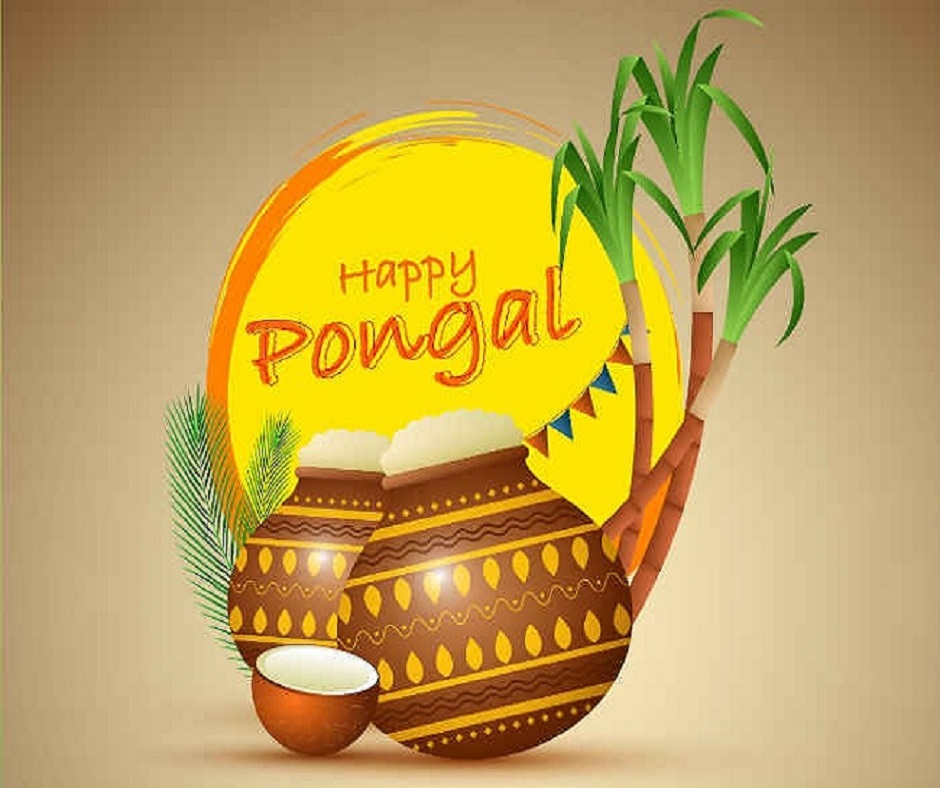 |
| Photo: English.Jagran |
What is Pongal?
Pongal is the biggest festival in Tamil Nadu starts on January 13th and ends on the 16th. It is a four-day-long festival celebrated with great enthusiasm. Bhogi Pongal, Thai Pongal (also known as Surya Pongal), Mattu Pongal, and Kaanum Pongal are the four festive days. The festival is essentially a celebration of a golden harvest when farmers express gratitude to the Sun god and Lord Indra. Pongal is a festival rich in traditions and customs. It includes special decorations, rituals and of course the food. Thai Pongal is the main day of the celebrations and it corresponds with the Makar Sankranti, according to NDTV.
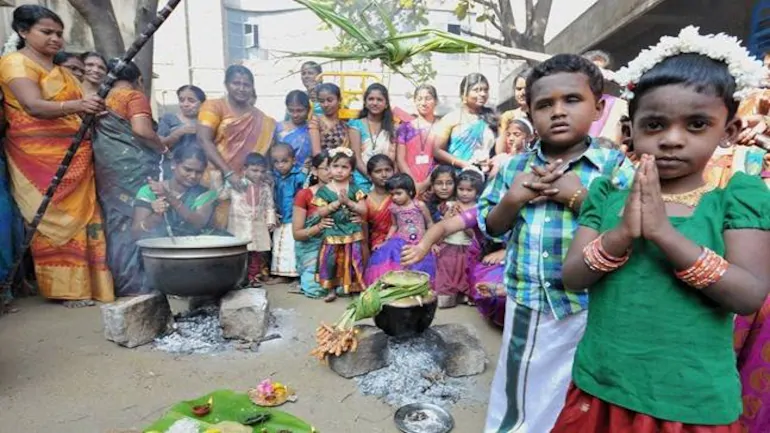 |
| Photo: NDTV |
Pongal 2021: Days and dates
Bhogi Pongal: Wednesday, January 13
Thai Pongal or Surya Pongal: Thursday, January 14
Thai Pongal Sankranti moment is 8:29 AM
Mattu Pongal: Friday, January 15
Kaanum Pongal: Saturday, January 16
Four days of Pongal
1. Bhogi Pandigai 2021 - January 13 (Wednesday)
Bhogi Pandigai is widely celebrated across Tamil Nadu on the day preceding Thai Pongal. That is, the last day of the Tamil month of ‘Markazhi’ is observed and celebrated as Bhogi Pandigai. Furthermore, Bhogi Pandigai marks the beginning of the celebrations of Pongal, which is one of the most important traditional festivals of the Tamil people.
The theme of Bhogi Pandigai is to throw away and burn old and unwanted stuff to bring in spiritual bhogam (prosperity) into our house and heart, said Festivalsofindia.
The history behind the word Bhogi has too many accounts. The widely reckoned etymology to the word Bhogi is that the word Bhogam entails receiving pleasure from divinity and the day offering that divine pleasure is named after Bhogi. Another legend accounts that Bhogi Pandigai is celebrated in the name of Lord Indra (god of rain and thunderstorms).
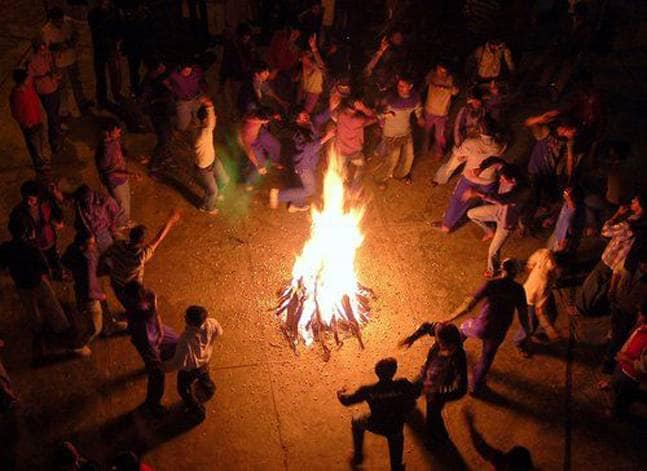 |
| Photo: Pinterest |
The celebrations of Bhogi Pandigai usually start early in the morning where homes are usually cleaned and washed. Subsequently, women and girls decorate the houses with beautiful kolam (rangoli) drawn out of rice flour and kaavi (red-oxide). People take head baths on this day as a part of the Bhogi festival celebrations.
The next step is performing pujas and offering ‘Bholi’ (battercake with lentil or coconut filling prepared with jaggery) to the almighty as naivedhyam (food offered to god as a part of the ritual). Later people assemble to light up a large outdoor fire to burn old and unwanted stuff.
Bhogi Pandigai is also celebrated in Andhra Pradesh in a grand manner on the same day as Bhogi and as Lohri in Punjab and Magh Bihu/Bhogali Bihu in Assam.
A very delicious and rich meal is prepared and served on plantain leaf on this day which includes Pachadi, Parupu, Kootu, Poriyal, Varuval, Apalam, Vadai, Payasam, Bholi, Rice, Sambar, Rasam, Thayir and so on.
2. Thai Pongal - January 14 (Thursday)
What is Thai Pongal?
Pongal is a harvest festival celebrated in Tamil Nadu, to offer thanksgiving to the Sun God . The word Ponga, means overflow. This festival signifies abundance and overflowing of the harvest. This also signifies the abundance of wealth and happiness. This is often celebrated as a four day festival, with Bhohi as a day marked to throw the old things away from us. It also signifies the cycle of new beginnings. The day after Pongal is celebrated as Mattu Pongal, specially to offer the tribute for the cattle, according to Astroved.
Significance of Thai Pongal
Pongal is a traditional celebration of South India and is associated with the Thanks Giving and a way to pay our Tribute. This is a harvest festival, where people pay their tribute to the Sun God. The prayers are often made for the coming year’s good harvest.
Thai Pongal is one of the very old traditions of Tamil people, and has been celebrated during Medieval Chola period. There are references in our early scriptures about various Kings and Queens celebrating this festival along with their subjects. It is believed that, more than 2000 years, this tradition has been in practice. There is a famous saying in Tail, states that “Thai Pirathal Vazi Pirakkum, which translates to “The month of Thai provides newer opportunities”.
Mythology Behind Thai Pongal
There are great references to Pongal in our ancient scriptures. Once Shiva asked his bull, Nandi, to announce the people on earth to have an oil bath daily and to eat just once a month. Unconsciously, Nandi announced that everyone should eat daily and take oil bath just once a month. After his incident, Nandi was punished by shiva to plough the field and help the people.
There is also another incident connecting to Pongal. When Lord Krishna was a child, he wanted to teach a lesson to Indra, as he became too arrogant after becoming the King of all the Gods. Then, Lord Krishna commanded all the people to stop worshiping Indra. Indra became furious and sent enormous rains to the earth.
Lord Krishna then held the Govardan Hill on his finger, to protect the humans from the heavy rain. After this incident, Indra realized his mistakes and requested Lord Krishna to pardon him. Since then, people started to celebrate this day with great enthusiasm, and believe that Lord Krishna is always with them to protect from all sorts of turmoil in life.
Rituals of Thai Pongal
Pongal is one of the greatest celebration for Tamil people. The Bhogi is the festival celebrated just a day before Thai Pongl. People used to discard the waste accumulated, and ensure a new spirited beginning. On the day of Thai Pongal, people offer their produce from the farm as the tribute to the Gods. A special feast is prepared using Rice, Lentils, Ghee, and Jagery. Sugarcane, flowers, fruits are also offered alongside, to appease the Sun God. Mattu Pongal is the day where Jallikattu is performed in some temples. People pray to their cattle and worship them. On the day of Kanum Pongal, sisters make special prayers for their brothers. Thus the four days would be full of fun, prayers, celebration and happiness.
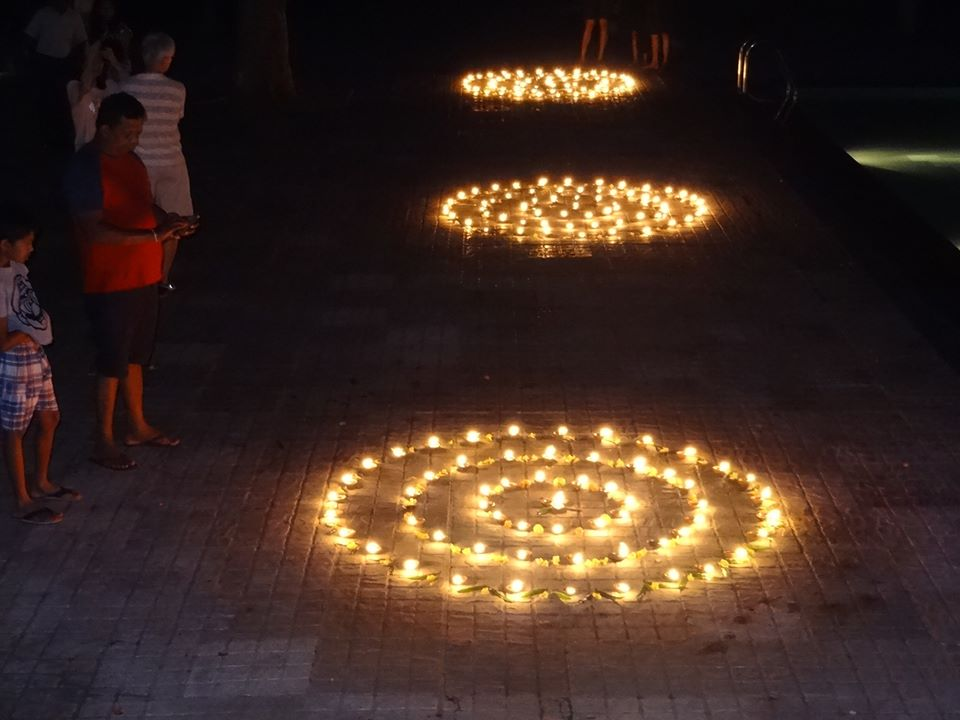 |
| Thai Pongal Decorations Photo: Medium |
Customs & Celebrations
Thai Pongal generally includes customs & celebrations that are the expression of jubilation over life's renewal. On Thai Pongal, the family begins the day early. Every member of the family gets up early in the morning, bathes put on new clothes, and gathers in the front of the garden (muttram) to cook the traditional Pongal (rice pudding). The front garden is pre-prepared for this ceremonious cooking. A flat square pitch is made and decorated with kolam drawings, and it is exposed to direct sunlight. A firewood hearth will be set up using three bricks. The cooking begins by putting a clay pot with water on the hearth.
A senior member of the family conducts the cooking and the rest of the family dutifully assists him or her or watches the event. When the water has boiled the rice is put into the pot - after a member of the family ceremoniously puts three handfuls of rice in first. The other ingredients of this special dish are chakkarai (brown cane sugar) or katkandu (sugar candy), milk (cow's milk or coconut milk), roasted green gram (payaru), raisins, cashew nuts, and few pods of cardamom.
When the meal is ready it is first put on a banana leaf and the family prays for a few minutes to thank the nature spirit, the sun, and farmers.
Then the meal (Pongal) is served with fruits (banana and mango) among the family. Later it will be shared with neighbors, friends, and relatives. Although every household makes the food, sharing each others 'Pongal' is one of the important features of the event. Some Hindu scholars believe that the rice is ceremoniously cooked on the Thai Pongal day because of its importance as a potent symbol of auspiciousness and fertility. The evenings are spent attending cultural events or visiting relatives and friends.
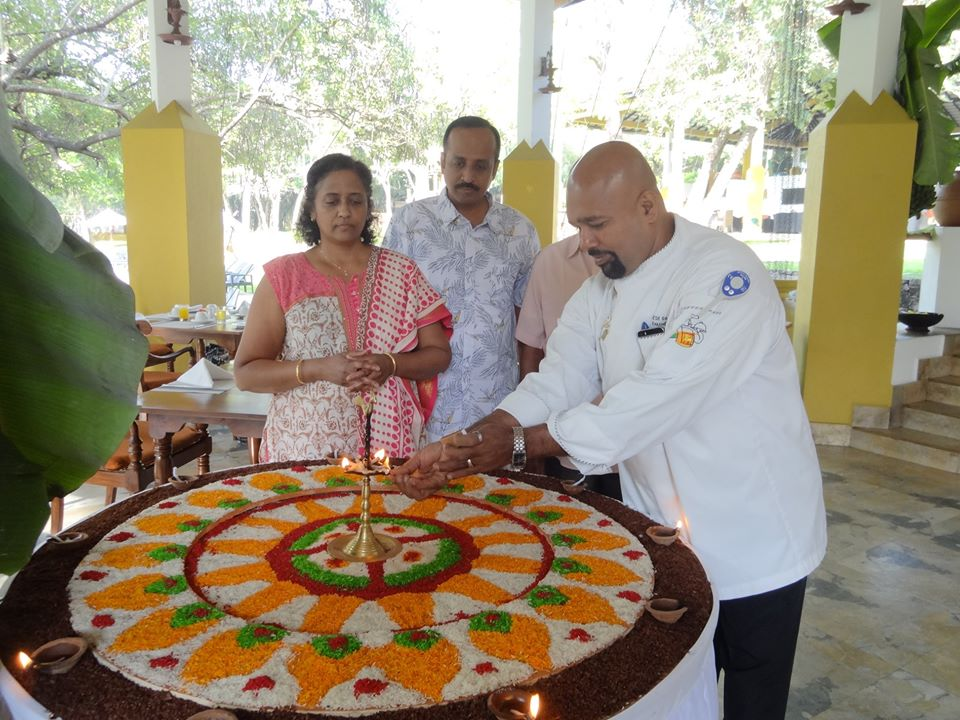 |
| Thai Pongal at Amaya Lake Photo: Medium |
Thanksgiving Day
The day of the Thai Pongal is devoted to thanksgiving to cattle. The farmers pay great attention to the animals which have plowed the fields and drawn the carts throughout the year. To show his gratitude for this invaluable service the animals are bathed, their horns are painted in red, blue, yellow, and green. Their foreheads are smeared with turmeric and kumkum. Their necks are adorned with colorful garlands. Pooja is offered to them and Pongal is given in plenty. This is called Mattu Pongal, Pongalfestival.com reported.
Meaning & Significance
Thai Pongal is an occasion for family reunions and get-together. Old enmities, personal animosities, and rivalries are forgotten. Estrangements are healed and reconciliation effected.
Indeed, Thai Pongal is a festival of freedom, peace, unity, and compassion crystallized in the last hymn on unity in the Indian spiritual text the Rig Veda. Thus, love and peace are the central themes of Thai Pongal.
3. Mattu Pongal - January 15 (Friday)
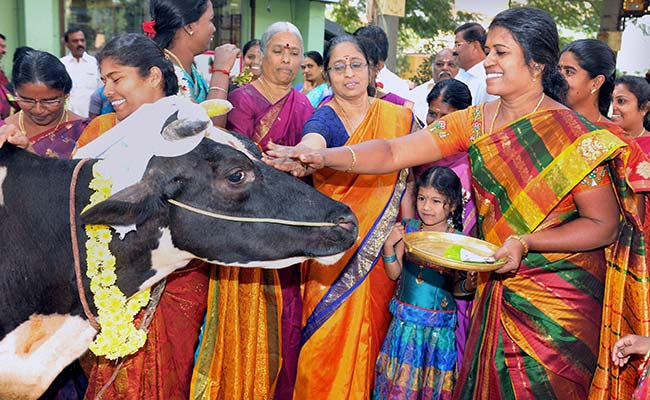 |
| On Mattu Pongal, cows and oxen are given a bath and offered the 'Pongal' Photo: NDTV |
The third day of Thai Pongal is referred to as Mattu Pongal, and it is a festival where people offer prayers to cows, bulls, and other farm animals. Cows and bulls are revered and venerated in India: cows provide nourishment in the form of milk, while bulls are essential for herding and oxen to plow fields.
Mattu Pongal is the day when cattle are given rest and prayed for. Farmers honor their loyal cattle by celebrating thanksgiving for them.
How is Mattu Pongal celebrated?
During the day of Mattu Pongal, cattle are washed while their horns are colored and covered in shining metallic caps. Beads, bells, sheaves of corn, and flower garlands are used to decorate their necks.
On this special day, people approach the decorated cattle and touch their foreheads and feet, after which an aarthi is carried out. An aarthi is a fire-venerating ceremony. After that, the cattle are fed Pongal as a holy offering of prasadam on this special day of thanksgiving. In fact, mattu is the Tamil word for “cow” and Pongal means “boiled rice”.
When is Mattu Pongal celebrated?
The Hindu celebration of Mattu Pongal is celebrated on the 15th of January almost every year, although sometimes it falls on the day after. As we said, it is the third day of the four-day Pongal festival.
Pongal also marks the fresh harvesting of rice, a crop associated with fertility, joy, and wealth. This way, it represents renewal and the change of season. Rice is a staple food in South India. On the day of Mattu Pongal, cattle are worshiped by Tamil people all over the world. Cattle and rice are linked, as they play a vital role in farms and help farmers to earn their everyday income. Here you can learn more about why are cows sacred in India.
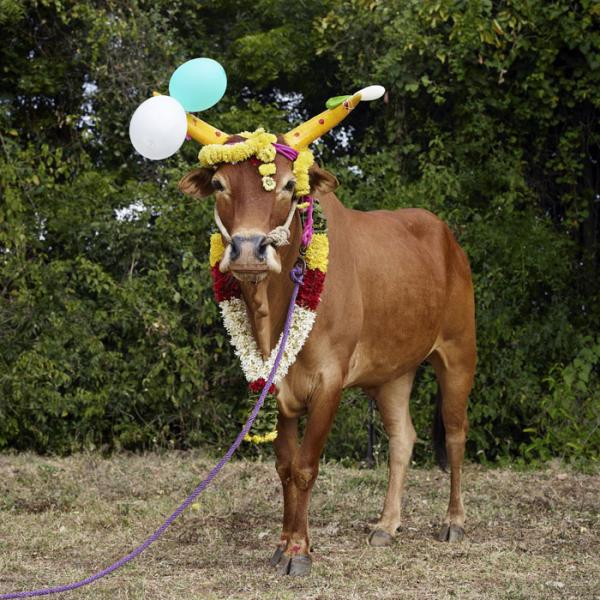 |
| Photo: Animalwised |
What is offered during Mattu Pongal?
The cooked Pongal is placed on the kolam or colorful decoration that has been created in the yard. Besides rice, cattle are given other offerings during the day of Mattu Pongal, such as ginger, turmeric, sugarcane, stick, and yellow garlands are offered.
People anoint the heads of the cows and bulls with turmeric and sprinkle saffron water on them. Aarthi, the offering of light and fire, is performed for Lord Krishna and Lord Indra on behalf of the cattle. The sound of the bell and bands of music ensure the atmosphere is vibrant and joyful.
4. Kaanum Pongal - January 16 (Saturday)
 |
| Photo: NDTV |
The fourth day of the three-day Pongal celebrations is called Kaanum Pongal. In a few places, this day is also known as Karinaal or Thiruvalluvar Day. It is dedicated to the sun god, Surya, and has its roots in ancient Brahminical tradition. Since Pongal is a rural, agrarian-based festival that celebrates the harvests, the sun is a vital part of the proceedings. This is because the Sun is the symbol of life on Earth. Without the Sun, crops cannot sprout and grow. Without the Sun, harvests will not be plentiful.
Surya Puja
On Kaanum Pongal, elaborate powdered chalk designs of the sun god, Surya are drawn. As soon as the auspicious month of Thai is underway, Surya is worshiped. Sheaves of sugarcane dot the prayer area. Freshly cooked food including the typical sweet dish 'Sarkarai Pongal' is first offered to Surya. Sugarcane that is offered is symbolic of sweetness and happiness in life. Sugarcane stalks and coconut- both auspicious symbols of plenty- are also offered to the Gods in propitiation of a plentiful harvest in the forthcoming year.
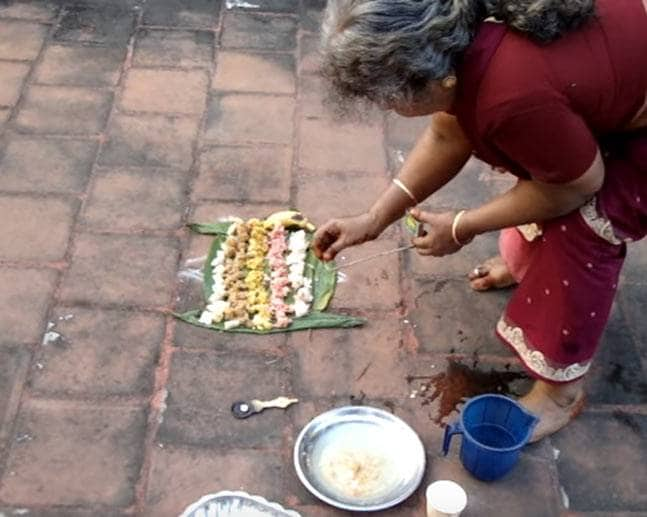 |
| Photo: Youtube |
Customs & Rituals
This day is very similar to Rakhsa Bandhan and Bhai Dhuj in that it is predominantly a festival where women offer prayers for the wellbeing of their brothers. The women perform this ritual before bathing in the morning. All the women, young and old, of the house, assemble in the courtyard. The rice is placed in the center of the leaf, while the women ask that the house and family of their brothers should prosper. Arati is performed for the brothers with turmeric water, limestone, and rice, and this water is sprinkled on the kolam in front of the house.
Celebration
On this day, people travel to see other family members, and the younger members of the family pay homage to the elders, and the elders thank them by giving token money. Another thing many do is leave food out on banana leaves for birds to take. Many South Indian people take the first bit of rice cooked on any given day and set it outside for the crows to take, so this is not necessarily a habit only for Pongal. Some also go to the temple to worship and thank god for all the good things that are bestowed on them.
For more information about PONGAL DAY, please click here!
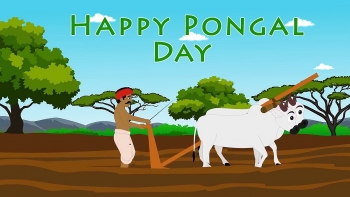 Pongal Day 2021: Best Wishes, Great Quotes, Messages (SMS) and Greeting Pongal Day 2021: Best Wishes, Great Quotes, Messages (SMS) and Greeting Pongal Day is known as harvest-celebrated festival in South India. The word 'pongal' refers to the dish of sweet rice prepared on this occasion. On ... |
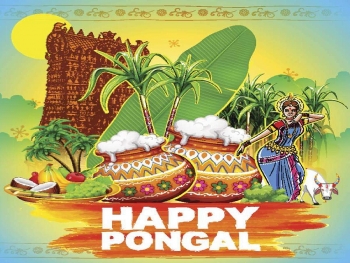 Pongal Day 2021: History, Meaning, Date and time, How to celebrate? Pongal Day 2021: History, Meaning, Date and time, How to celebrate? Four-day festival Pongal Day is known as an important event for people across Southern India to celebrate the harvest. It is annually celebrated from January ... |
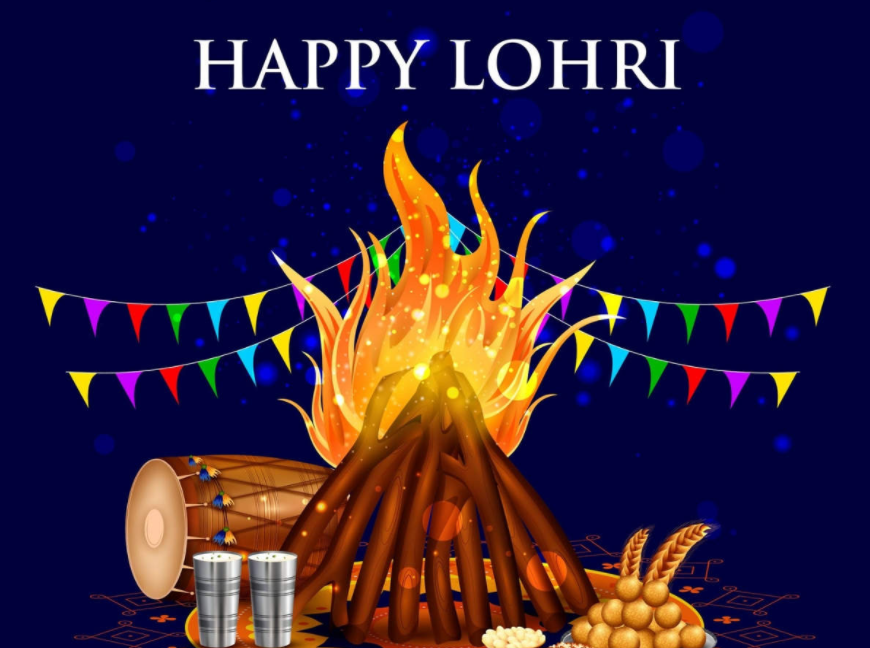 Lohri 2021: Best quotes and messages for your loved ones Lohri 2021: Best quotes and messages for your loved ones Not only the festival to celebrate a successful harvest, Lohri marks itself as an important occasion to send your dear ones meaningful wishes and messages. |
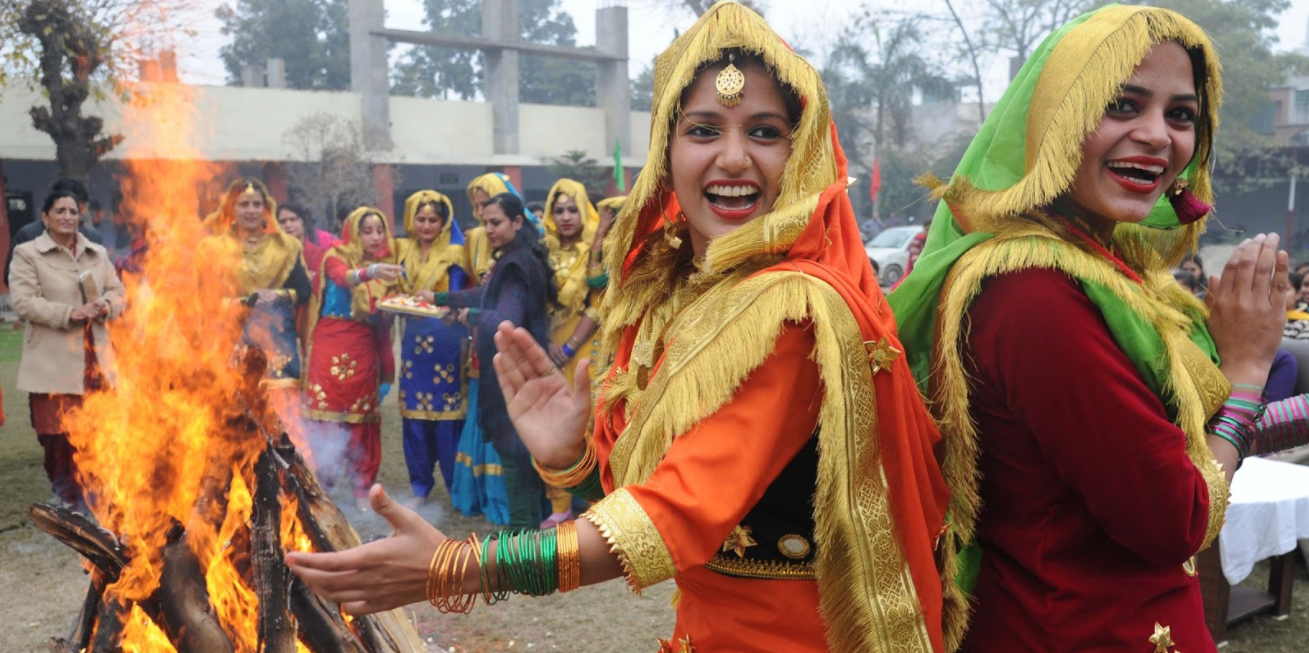 Lohri day: History, Why it is celebrated & Facts of little known Lohri day: History, Why it is celebrated & Facts of little known Celebrated on January 13 every year, the Lohri festival holds a special significance for Hindu community. |
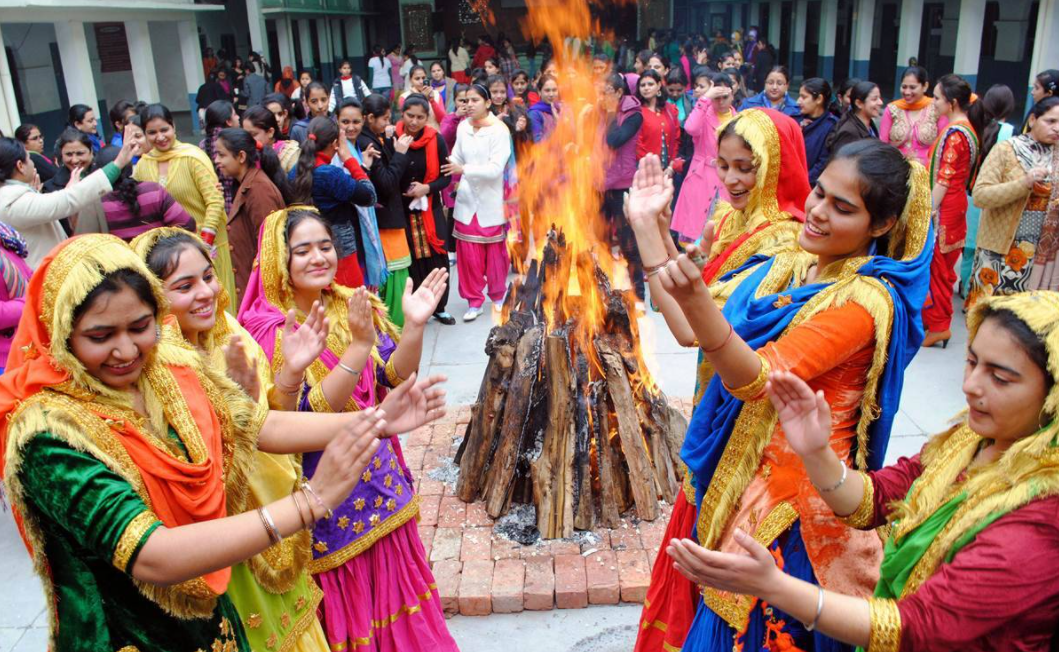 Lohri 2021: Date, Time, Significance, and Celebrations Lohri 2021: Date, Time, Significance, and Celebrations Lohri - among Hindu's most significant festival of harvest is celebrated on January 13 annually. Let's find out about when and how it is celebrated. |


























